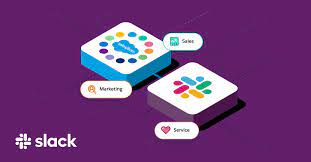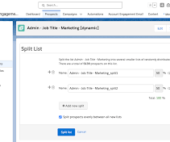The buzz surrounding the Salesforce Acquires Slack announcement has been ongoing, culminating in the official approval on December 1, 2020, with Salesforce, a leading CRM entity, acquiring Slack for a substantial $27.7 billion.
Salesforce’s CEO, Marc Benioff, hailed the acquisition as a ‘match made in heaven,’ and this sentiment resonates widely.
While Salesforce had previously ventured into the collaboration space with Chatter, Community Cloud, and Quip, the results weren’t as impactful as desired. However, the incorporation of applications and data integration through Mulesoft and business intelligence via Tableau bolstered Salesforce’s toolkit. The addition of Slack solidifies Salesforce’s entry into the communication and collaboration domain.
This acquisition signals a transformative shift in the digital work landscape, particularly for digital natives. It signifies a strategic move by Salesforce to enhance its focus on customer-facing tools and delve into the employee engagement market.
The collaboration with Slack positions Salesforce to address the market dynamics more effectively. The integration of Salesforce’s CRM capabilities with Slack’s platform, which unites people, data, and tools for seamless collaboration, is poised to reshape the market.
Slack’s open platform, with integration capabilities spanning 2400 apps, positions Salesforce to tap into a broad user base. The collaboration will contribute revenue and data to fuel Salesforce’s AI projects, amplifying its capabilities.
The impact on Microsoft is noteworthy, as Slack becomes a formidable competitor to Microsoft’s Teams. This intensifies the competition in the cloud services arena, particularly amid the accelerated shift towards remote work.
For users, the amalgamation of Salesforce and Slack promises to create a new ‘operating system’ for businesses navigating the digital landscape. This unified platform aims to simplify organizational workflows, connecting employees, customers, and partners seamlessly.
Key implications for users include the ability to:
- Create connected customer experiences.
- Reduce complexity.
- Enhance flexibility for employees.
- Improve organizational alignment and agility.
- Boost overall productivity.
Salesforce’s plan to integrate Slack with its Customer 360 software and designate Slack as its new interface underscores its commitment to revolutionizing communication, collaboration, and action on customer information.
The user benefits extend to facilitating conversations among sales teams, customers, and playing a pivotal role in customer service. The recent introduction of Slack Connect, enabling communication and collaboration with external partners, further expands Slack’s utility.
Salesforce’s extensive enterprise app ecosystem combined with Slack’s capabilities sets the stage for a robust open ecosystem of apps and workflows. This collaborative environment empowers developers to innovate and create applications that align with customer preferences.
While Salesforce envisions future revenue and growth through the integration of Slack, the operational intricacies of this merger may pose challenges. Salesforce’s past strategies suggest an initial hands-off approach, allowing Slack to operate independently. This acquisition marks the initial steps toward reshaping how we work, collaborate, and automate workflows and business processes in the cloud.
Content updated December 2023.









